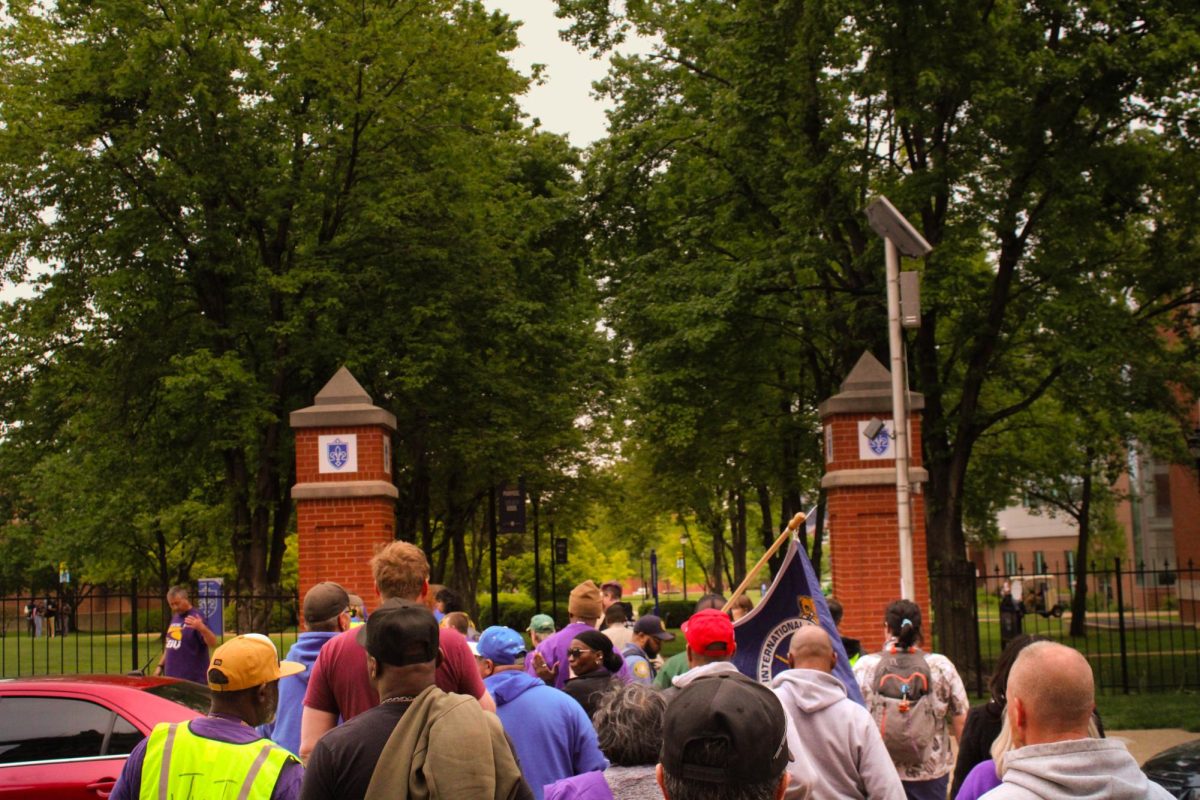Over the weekend, U.S.-led coalition forces in Iraq suffered the
heaviest casualties since President George Bush’s declaration of
the end of fighting in Operation Iraqi Freedom.
Tuesday morning, a soldier in the Army’s 1st Armored Division
was killed and another soldier was wounded when a makeshift
explosive device exploded in the Baghdad area. Tuesday evening,
three people were wounded in a blast in Baghdad, though it is
unknown if the wounded are civilians or military personnel, as well
as if they are Americans. On Monday in northern Iraq, a member of
the Army’s 4th Infantry Division in Tikrit, the hometown of Saddam
Hussein, was killed when his vehicle hit a mine.
Coalition forces endured the single most deadly day since Iraq
was invaded on March 20, when one soldier and two civilian
contractors were killed in Baghdad and another 15 soldiers were
killed in the crash of a CH-47 Chinook transport helicopter.
The helicopter was approximately 60 kilometers west of Baghdad
when it was struck by a shoulder-type missile before crashing in
open farmland. The 32-35 people on board were leaving Baghdad for
an “R & R Mission” in the United States or Qatar. Twenty people
on board were injured, 16 of whom were taken to Ramstein Air Base
in Germany and were treated at the nearby Landstuhl Medical Center.
Eleven of the 16 were treated in the intensive care unit. A total
of 15 people died as a result of the crash.
Of those killed, 10 have been identified by the Department of
Defense, two have been identified by families and three remain
unidentified. Four of the injured soldiers remain missing.
“Chinook was a tough blow to the sense of American power and
invincibility from the air,” said Timothy J. Lomperis, Ph.D., chair
of the political science department. “Convoys are ambushed, but we
always had the trump card of air. Helicopters are always
vulnerable, and they are easy to bring down because they are
delicate machines.”
Lomperis believes that the downing of Chinook may carry
significant implications, in that if it was an isolated incident,
the United States will be able to recover; but if large numbers of
helicopters are brought down, the war will reach a “grim phase” and
may dampen the coalition victory.
“With the downing, we have to understand that we are still in a
war. The declaration of the end of combat was an attempt to say
that we’re now in a peaceful nation-building phase. But if there
are casualties, there is not peaceful nation-building–there is
war,” Lomperis said.
The number of American casualties has risen to 383,257 of whom
were killed under hostile circumstances.
U.S. civilian administrator in Iraq Paul Bremmer indicated his
plan to have 200,000 Iraqis involved in their own security forces
by next September. Bremmer and coalition officials in Iraq stated
they believe Saddam is alive and in Iraq, though there is no
indication that he was behind the attacks that occurred over the
weekend and early this week. Saddam’s loyalists, terrorist groups
and insurgents are believed to be responsible for the attacks.
“[Gradual incorporation of Iraqis into security] definitely
needs to be done … We need to pinpoint intelligence, and that
will only come from Iraqis,” Lomperis said. “But the danger of
bringing Iraqis in too quickly is that intelligence is a two-way
game: Some will be moles; but if we don’t do it, we don’t get that
intelligence.”
Lomperis believes intelligence is a critical factor in the war
in Iraq and the larger war against terrorism and should be handled
in such a way that it is not subject to politicization.
Furthermore, Lomperis believes it is important for the intelligence
community and officials in Washington to maintain secrecy and
security with intelligence, but “outlines” should be communicated
to the American people, when possible, in order to help maintain
the political will to participate in the conflict.
Tuesday in Washington, Congress gave its final approval to
Bush’s request for $87.5 billion for U.S. military operations and
aid in Iraq and Afghanistan. The vote was passed by a voice vote in
the Senate, instead of the usual role-call vote normally used for
major legislation, and a 298-121 vote in the House of
Representatives.
Senate Appropriations Committee Chairman Ted Stevens (R-Alaska)
vowed that the United States would not abandon military operations
in Iraq or Iraqi citizens, nor would the United States create a
vacuum for terrorists by failing to provide adequate support in
Iraq.
Some senators who criticized Bush’s strategy and disagreed with
the war said they will support the bill in order to help the troops
serving in Iraq and Afghanistan, but dissent lingers in
Congress.
Senator Robert Byrd of West Virginia, the top Democrat on the
Appropriations Committee, called the grant a “monument to failure”
and cited lack of help from allies and mounting casualties in his
vote against of the bill.






